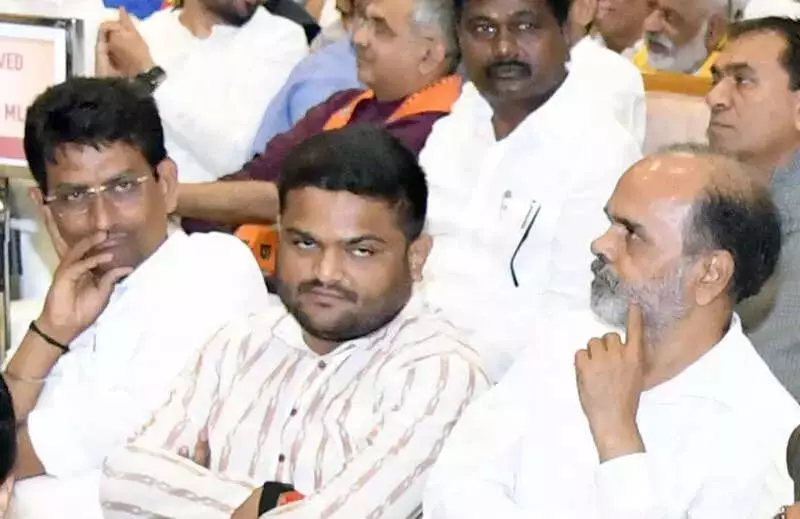
In a dramatic political maneuver that has sent ripples across Gujarat's political landscape, the state government has sidelined two prominent faces of past quota agitations in its latest cabinet reshuffle. Hardik Patel, once the fiery face of the Patidar reservation movement, and Alpesh Thakor, who led the OBC quota stir, have both been conspicuously benched in what political analysts are calling a strategic repositioning.
Major Overhaul in Gujarat Ministry
The Bhupendra Patel-led government executed a significant cabinet reorganization, bringing in fresh faces while dropping several ministers. The most notable exclusions were Hardik Patel, who held the Tourism portfolio, and Alpesh Thakor, who served as Minister of State for Tourism. Both leaders had joined the BJP after their respective quota movements gained massive traction across the state.
Strategic Political Calculation
Political observers suggest this move indicates the BJP's confidence in its current support base and its intention to present a renewed face to voters. The benching of these controversial yet influential leaders appears to be a calculated risk aimed at minimizing potential anti-incumbency while maximizing the party's appeal across broader voter segments.
"This reshuffle sends a clear message that the BJP believes it has successfully absorbed the quota agitation energy and no longer needs to prominently showcase these leaders," noted a senior political analyst based in Ahmedabad.
Rise of New Leadership
While Patel and Thakor were shown the door, the cabinet saw the induction of several new ministers, including:
- Kunvarji Halpati from Morbi
- Parshottam Solanki from Bhavnagar
- Pratap Dudhat from Shahpur
- Vikram Madam from Dahegam
This new mix represents a careful balancing act of caste equations and regional representation that has become characteristic of the BJP's political strategy in Gujarat.
Impact on Gujarat's Political Dynamics
The exclusion of these high-profile leaders raises important questions about the future political trajectory of both Patel and Thakor. Having transitioned from agitation leaders to BJP members and subsequently ministers, their benching marks a significant turning point in their political careers and in Gujarat's ongoing political narrative.
As the state prepares for future electoral battles, this cabinet reshuffle demonstrates the ruling party's continuous evolution and its relentless focus on maintaining political dominance through strategic repositioning and leadership renewal.





